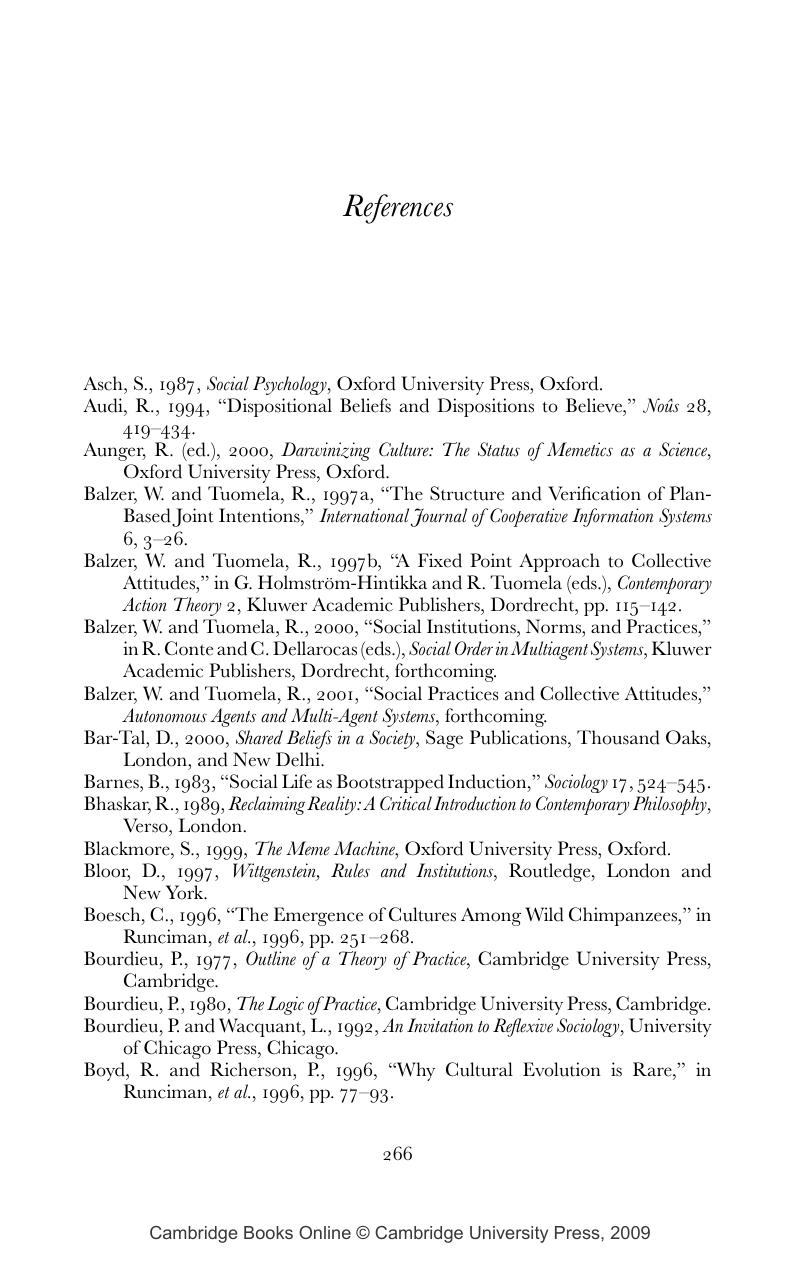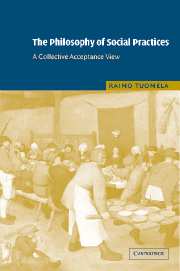Book contents
- Frontmatter
- Contents
- List of figures
- Acknowledgments
- Introduction
- 1 Collective intentionality and the construction of the social world
- 2 Collective intentionality
- 3 Conceptual activity, rule following, and social practices
- 4 An account of social practices
- 5 A Collective Acceptance account of collective-social notions
- 6 Social institutions
- 7 Social practices in a dynamic context: a mathematical analysis
- Epilogue
- Notes
- References
- Index
- References
References
Published online by Cambridge University Press: 22 September 2009
- Frontmatter
- Contents
- List of figures
- Acknowledgments
- Introduction
- 1 Collective intentionality and the construction of the social world
- 2 Collective intentionality
- 3 Conceptual activity, rule following, and social practices
- 4 An account of social practices
- 5 A Collective Acceptance account of collective-social notions
- 6 Social institutions
- 7 Social practices in a dynamic context: a mathematical analysis
- Epilogue
- Notes
- References
- Index
- References
Summary

- Type
- Chapter
- Information
- The Philosophy of Social PracticesA Collective Acceptance View, pp. 266 - 271Publisher: Cambridge University PressPrint publication year: 2002



